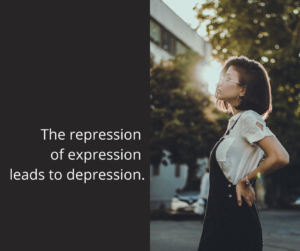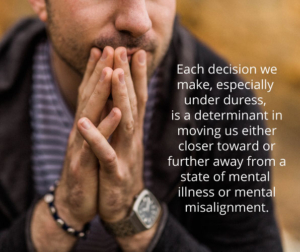Emotional Withdrawal Symptoms and How to Recover
🎧 Listen to this article
Do you feel like taking a step back when things get tough in your life? If so, you may be using emotional withdrawal as a defense. This is a common situation, but it can lead to other problems if not addressed. Newport Beach Christian Counseling offers support to help you navigate and overcome these challenges.
Withdrawal is a coping mechanism for pain. It’s a self-protective measure a person uses to keep from getting hurt again. However, when withdrawal is used over long periods or repeated, it can cause further relational decay.
Reasons for Withdrawal
The reasons for withdrawing can be myriad in number. They can be due to either real or perceived threats to one’s mental, physical, or emotional safety. Here are several common examples of why people may withdraw.
- A boy is bullied at school and withdraws from all social contact with peers.
- A young girl is sexually abused by an uncle and withdraws from all males in her family.
- A wife withdraws from her husband after he has an affair with a coworker.
- A young woman experiences spiritual abuse at church and refuses to attend organized services again.
- A man is treated poorly by his boss and withdraws from social contact with other coworkers.
- A divorced father withdraws from his children.
- An elderly mother refuses to see her adult children.

Shame is often a root of withdrawal. In each example above, the people may partially blame themselves for the mistreatment they received. They may even feel like they deserve poor treatment, due to a damaged self-image. Shame can hold us down and keep us from living the life God intended for us to live.
Real guilt may also be involved in withdrawal situations. While shame is attached to false guilt, real guilt is attached to something we did to hurt others. The divorced father may feel guilty for turning his children’s lives upside down. The elderly mother may feel guilty for prioritizing her career over her children when they were young.
Anger is often a reason for withdrawal. The bullied boy is understandably angry at the bully. Likewise, it’s reasonable for the wife to be angry about her husband’s affair, and the teen girl to be angry over the breakup. Anger is a normal, even healthy, reaction to unwanted changes. But when it is not handled properly, it can cause a person to withdraw.
 Fear can be attached to reasons for withdrawal. Many people who withdraw live in dread of getting hurt so badly again. Though the real threat of danger may have passed, the trauma from the original incident runs deep. The fear of getting hurt again can drive the urge to withdraw.
Fear can be attached to reasons for withdrawal. Many people who withdraw live in dread of getting hurt so badly again. Though the real threat of danger may have passed, the trauma from the original incident runs deep. The fear of getting hurt again can drive the urge to withdraw.
No matter the reason for your withdrawal, a caring Christian counselor can help you deal with it. In many cases, talk therapy is highly effective for handling withdrawal and moving toward healing. Your counselor will be able to help identify the reason for your withdrawal and get you past it.
Signs of Withdrawal
The signs of withdrawal run parallel to the signs for the underlying feelings of shame, guilt, anger, and fear. Here are some signs you may notice if you are withdrawing from others.
- Avoiding eye contact
- One-word answers
- Silent treatment
- Leaving the room when someone enters
- Fear of returning to where the original incidents occurred
- Spending much more time alone than usual
- Not responding to texts, emails or calls
Withdrawal can lead to intense loneliness, and untended loneliness can lead to depression, which can have major risks. These are the signs of depression to watch for:
- Bouts of tearfulness
- Feelings of inappropriate or excessive guilt
- Irritation or uncharacteristically short temper
- Lack of concentration
- Loss of energy even with normal daily activities
- Loss of pleasure or interest in activities you once enjoyed
- Memory problems
- Negative impact on work
- No longer attending normal social engagements
- Restlessness or pacing
- Significant increase or decrease in appetite
- Sleeping too much or experiencing insomnia
- Slow movements or slowed, quiet speech
- Feelings of worthlessness
- Recurring thoughts about death, dying, and suicide
If you have at least three of these symptoms for more than two weeks in a row, it’s important to meet with a counselor. In counseling, you’ll receive the help you need to overcome your depression and start connecting with safe people again.
Emotional Withdrawal Symptoms
 Emotional withdrawal symptoms can last for a few weeks after a trigger incident. If not handled right away, these symptoms can persist for months or even years. You need help to deal with these symptoms, so they don’t exact a heavy toll on your physical and mental well-being.
Emotional withdrawal symptoms can last for a few weeks after a trigger incident. If not handled right away, these symptoms can persist for months or even years. You need help to deal with these symptoms, so they don’t exact a heavy toll on your physical and mental well-being.
If you’ve had any of the following symptoms for more than two weeks in a row, it’s time to get help.
- Anxiety
- Depression
- Intense loneliness
- Irrational fears
- Not leaving your home
No one can successfully navigate these problems on their own. We can help you discover the roots of your withdrawal so you can eliminate these symptoms. If you are not making progress on your own, a consultation with a professional can give you a new perspective plus practical tips for recovering.
Recovering from Emotional Withdrawal
To recover from emotional withdrawal, you not only need to deal with the roots of the problem but find new ways of relating to others. A counselor can help you find the solutions, plus role-play improved relationship dynamics. Let’s look at the examples above to see how these people were able to move past withdrawal.
 The boy who was bullied gains some boundary-setting skills with his counselor. He learns to view his classmates as not “all bad” any longer. By taking a few calculated risks, practiced with his counselor, he connects with one child in the class and begins building a friendship.
The boy who was bullied gains some boundary-setting skills with his counselor. He learns to view his classmates as not “all bad” any longer. By taking a few calculated risks, practiced with his counselor, he connects with one child in the class and begins building a friendship.- As the young girl receives counseling, she learns to grieve her losses and heal from the trauma. Her counselor helps her see that while her uncle made very poor choices that hurt her, other males in her family have been consistently loving and kind. She begins taking baby steps toward a closer relationship with her father.
- The wife attends her own counseling sessions in addition to marriage counseling sessions with her husband. As they work to repair and restore their marriage, the wife works on her own tendency to use the silent treatment when she’s hurting. By overcoming that relationship problem, she learns to stay connected to her husband even when they experience conflict.
- The young woman who was spiritually abused walks through the grieving process with her counselor. In her counseling sessions, she learns what personality traits attracted her to the abusive church, and how to overcome those weaknesses. She begins testing out other churches with her friends, not committing to any but keeping her eyes open.
- Through counseling, the man decides he needs to quit this job, mourn the losses, and build up his emotional strength to start a new job. When he finds a new job, he’s better prepared to build connections with coworkers from the start.
- The divorced father deals with his guilt and shame in the counselor’s office. There, he discovers that he still has great worth in God’s eyes and finds the courage to rebuild the relationships with his children.
- The elderly mother talks with a counselor about her past. Though she cannot go back and change anything that happened, she learns that a sincere apology goes a long way toward building bridges. She practices that conversation with her counselor and hopes that her later years will be the best ones yet.
If you are suffering from emotional withdrawal, you can find the same hope and healing as in the examples above. A compassionate Christian counselor is waiting to help. Give us a call today at Newport Beach Christian Counseling to set up a meeting.
“Alone in Church”, Courtesy of Polina Sirotina, Pexels.com, CC0 License; “Grief”, Courtesy of Kat Jayne, Pexels.com, CC0 License; “Workout Partners”, Courtesy of Luis Quintero, Pexels.com, CC0 License; “Cooking Together”, courtesy of August de Richelieu, Pexels.com, CC0 License

 SAD is the official psychological diagnosis for social anxiety so intense that it disrupts your daily life and functioning. Not everyone with social anxiety has a mental health disorder, but whether or not your anxiety has prevented you from functioning, it has probably caused you significant distress.
SAD is the official psychological diagnosis for social anxiety so intense that it disrupts your daily life and functioning. Not everyone with social anxiety has a mental health disorder, but whether or not your anxiety has prevented you from functioning, it has probably caused you significant distress. Sometimes this condition may seem to go away for awhile, but it flares up under stress, or when it’s no longer possible to avoid a triggering situation. If that is the case, you may think you don’t need to seek treatment for the anxiety, but fast forward several months or a few years. You’re going through a lot of life stressors, and suddenly you find that your social anxiety has driven you to avoidance and you’ve become isolated.
Sometimes this condition may seem to go away for awhile, but it flares up under stress, or when it’s no longer possible to avoid a triggering situation. If that is the case, you may think you don’t need to seek treatment for the anxiety, but fast forward several months or a few years. You’re going through a lot of life stressors, and suddenly you find that your social anxiety has driven you to avoidance and you’ve become isolated. Or maybe you grew up with parents who were controlling or overprotective. If children are not allowed to naturally develop independence, they may internalize the message that they are not capable of successfully navigating the world on their own. If children are overly dependent due to being overly protected, they may develop social anxiety because they don’t have the necessary skills to navigate social situations – or they just don’t have the confidence.
Or maybe you grew up with parents who were controlling or overprotective. If children are not allowed to naturally develop independence, they may internalize the message that they are not capable of successfully navigating the world on their own. If children are overly dependent due to being overly protected, they may develop social anxiety because they don’t have the necessary skills to navigate social situations – or they just don’t have the confidence. Expressive or therapeutic writing is connected to better mental and physical health, and it has even been shown to lower social anxiety levels over time in subjects who wrote about a stressful public speaking event.
Expressive or therapeutic writing is connected to better mental and physical health, and it has even been shown to lower social anxiety levels over time in subjects who wrote about a stressful public speaking event. If you’re interested in self-help or self-development, you might have noticed popular social media figures promoting law of attraction concepts. For example, YouTuber Lavendaire, who has a million subscribers, wrote this on her blog:
If you’re interested in self-help or self-development, you might have noticed popular social media figures promoting law of attraction concepts. For example, YouTuber Lavendaire, who has a million subscribers, wrote this on her blog: Of course, this concept is attractive! It offers us a sense of control. Who wouldn’t want to be healthy and wealthy? But is this belief based on science and evidence, or is it pseudoscience? And more importantly, does this concept align with Scripture, or is it based solely on humanistic or New Age teachings?
Of course, this concept is attractive! It offers us a sense of control. Who wouldn’t want to be healthy and wealthy? But is this belief based on science and evidence, or is it pseudoscience? And more importantly, does this concept align with Scripture, or is it based solely on humanistic or New Age teachings? Certain aspects of positive thinking can create a self-fulfilling prophecy. You decide to be positive, so your happiness attracts people to you, leading to improved relationships, career progress, etc.
Certain aspects of positive thinking can create a self-fulfilling prophecy. You decide to be positive, so your happiness attracts people to you, leading to improved relationships, career progress, etc.
 Grief is not always related to physical death. It can be the death of a dream or the death of a life stage that you enjoyed. A new mother of a special needs baby may need to give up dreams for her child and the future she expected.
Grief is not always related to physical death. It can be the death of a dream or the death of a life stage that you enjoyed. A new mother of a special needs baby may need to give up dreams for her child and the future she expected. Two months after the funeral, everyone has gone back to their regular lives, except Diane. She has felt numb, telling everyone she is fine. But her anger at the slightest provocations, as when she is driving, shocks her. Diane feels withdrawn, sullen, and miserable. Finally, she reaches out for help at church. Her pastor suggests that she meet with a Christian counselor to deal with her grief.
Two months after the funeral, everyone has gone back to their regular lives, except Diane. She has felt numb, telling everyone she is fine. But her anger at the slightest provocations, as when she is driving, shocks her. Diane feels withdrawn, sullen, and miserable. Finally, she reaches out for help at church. Her pastor suggests that she meet with a Christian counselor to deal with her grief. On their wedding anniversary three years after Paul died, Diane visits his burial site with a much lighter heart. She still feels sad, but she is no longer consumed by grief. She thanks God for all the goodness Paul brought to her life. As she drives away, she praises God for bringing her to a place of acceptance.
On their wedding anniversary three years after Paul died, Diane visits his burial site with a much lighter heart. She still feels sad, but she is no longer consumed by grief. She thanks God for all the goodness Paul brought to her life. As she drives away, she praises God for bringing her to a place of acceptance. But he reaches for acceptance by setting a 24-month deadline to move out on his own again. During that period, he will receive the counseling support he needs to rebuild his spiritual and emotional reserves.
But he reaches for acceptance by setting a 24-month deadline to move out on his own again. During that period, he will receive the counseling support he needs to rebuild his spiritual and emotional reserves. The fear of abandonment can create lasting problems from childhood long into adulthood. Adults with abandonment issues may sabotage, consciously or subconsciously, personal relationships with others. This can take the form of pushing a partner away after a period of time to keep that person from eventually leaving first.
The fear of abandonment can create lasting problems from childhood long into adulthood. Adults with abandonment issues may sabotage, consciously or subconsciously, personal relationships with others. This can take the form of pushing a partner away after a period of time to keep that person from eventually leaving first. If the child comes from a poor family where the basics of food, running water, power, and heat are not provided consistently, the child may associate that with a lack of love. Loving parents try to provide for their children’s basic needs, and on some level, children instinctively know this.
If the child comes from a poor family where the basics of food, running water, power, and heat are not provided consistently, the child may associate that with a lack of love. Loving parents try to provide for their children’s basic needs, and on some level, children instinctively know this. During the aftermath of a parent’s death, the surviving parent must cope with their own emotions. Sometimes this means that they wind up neglecting their child’s emotional needs. This isn’t necessarily done on purpose; both child and parent are hurt.
During the aftermath of a parent’s death, the surviving parent must cope with their own emotions. Sometimes this means that they wind up neglecting their child’s emotional needs. This isn’t necessarily done on purpose; both child and parent are hurt. The behavior from the fear of abandonment causes a reaction from those involved. Unfortunately, the adult with these issues may get a sense of satisfaction from these reactions and the attention they garner and cycle through the behavior again. To the outside world, these people appear full of drama and consistently in new relationships. However, the truth is that the person is hurting with an emotional need that is still unmet.
The behavior from the fear of abandonment causes a reaction from those involved. Unfortunately, the adult with these issues may get a sense of satisfaction from these reactions and the attention they garner and cycle through the behavior again. To the outside world, these people appear full of drama and consistently in new relationships. However, the truth is that the person is hurting with an emotional need that is still unmet. The APA Dictionary of Psychology defines passivity as “a form of adaptation, or maladaptation, in which the individual adopts a pattern of submissiveness, dependence, and retreat into inaction.”
The APA Dictionary of Psychology defines passivity as “a form of adaptation, or maladaptation, in which the individual adopts a pattern of submissiveness, dependence, and retreat into inaction.” We can look to the Bible for examples of how passivity cost people tremendous amounts of heartache and loss. One clear example is Jacob, son of Isaac and Rebekah, as we read in Genesis 25-28. Though his brother Esau was the heir to their father’s inheritance, Jacob passively allowed his mother to manipulate the situation so he would receive the blessing.
We can look to the Bible for examples of how passivity cost people tremendous amounts of heartache and loss. One clear example is Jacob, son of Isaac and Rebekah, as we read in Genesis 25-28. Though his brother Esau was the heir to their father’s inheritance, Jacob passively allowed his mother to manipulate the situation so he would receive the blessing. Emotionally, passivity can exact a heavy toll. You may feel weak and insecure, lacking confidence in your ability to take charge of your life. Passivity can cause anxiety, depression, anger, and other emotional disturbances.
Emotionally, passivity can exact a heavy toll. You may feel weak and insecure, lacking confidence in your ability to take charge of your life. Passivity can cause anxiety, depression, anger, and other emotional disturbances. The parents come up with a 60-day plan for holding their son accountable for finding a job and his own place. They work with a counselor to form talking points for a loving confrontation.
The parents come up with a 60-day plan for holding their son accountable for finding a job and his own place. They work with a counselor to form talking points for a loving confrontation. But in those times, it was quite clear that such devices were generally for entertainment purposes. It was easier then for both parents and children to understand that when studying or doing other daily tasks, such devices had to be turned off or left at home.
But in those times, it was quite clear that such devices were generally for entertainment purposes. It was easier then for both parents and children to understand that when studying or doing other daily tasks, such devices had to be turned off or left at home. For lots of teens, their social media accounts have become their virtual “hangout” where they keep in touch with others, even if they are at home. Teens can easily spend hours on their various accounts as they scroll through their friends’ and family members’ accounts, communicate with others, and update their own social media pages. And this is where the anxiety comes in.
For lots of teens, their social media accounts have become their virtual “hangout” where they keep in touch with others, even if they are at home. Teens can easily spend hours on their various accounts as they scroll through their friends’ and family members’ accounts, communicate with others, and update their own social media pages. And this is where the anxiety comes in.
 When being mindful, the brain is trained to become aware of the things happening around them – sounds of water or animal life, the feel of the ground under their feet, the smell of their immediate environment, or the beauty of their world seen through open eyes. In this way, they may then be able to pull their minds out of the virtual world they may be in and reassess what is “real.” This is particularly helpful if they find their minds stuck on negative thoughts about a recent post or comment on social media.
When being mindful, the brain is trained to become aware of the things happening around them – sounds of water or animal life, the feel of the ground under their feet, the smell of their immediate environment, or the beauty of their world seen through open eyes. In this way, they may then be able to pull their minds out of the virtual world they may be in and reassess what is “real.” This is particularly helpful if they find their minds stuck on negative thoughts about a recent post or comment on social media. Underlying medical conditions (such as thyroid or hormonal issues), use or abuse of prescription medication or other substances (alcohol, marijuana, etc.), a lack of adequate nutrition (eating too much sugar or processed foods) or physical activity, and any pre-existing addictions may contribute to the development of depression.
Underlying medical conditions (such as thyroid or hormonal issues), use or abuse of prescription medication or other substances (alcohol, marijuana, etc.), a lack of adequate nutrition (eating too much sugar or processed foods) or physical activity, and any pre-existing addictions may contribute to the development of depression.

 Problematic patterns of intrapersonal relating (the way we relate to ourselves generally as well as how we respond when disappointed, hurt, or rejected) tend to be overlooked and/or misunderstood in terms of their contribution to the development of depression and other mood disorders.
Problematic patterns of intrapersonal relating (the way we relate to ourselves generally as well as how we respond when disappointed, hurt, or rejected) tend to be overlooked and/or misunderstood in terms of their contribution to the development of depression and other mood disorders. Forgiveness is a major theme in the Bible, if not the theme. It is a part of the whole narrative of scripture, describing the process of the fall of man in sin and God’s forgiveness of sin through the life, death, and resurrection of Jesus.
Forgiveness is a major theme in the Bible, if not the theme. It is a part of the whole narrative of scripture, describing the process of the fall of man in sin and God’s forgiveness of sin through the life, death, and resurrection of Jesus. “A process that allows you to untangle the relationship among your thoughts, your actions, and the responses of your body. As you’ll see, forgiving people for what they did doesn’t mean forgetting what they did. It also doesn’t mean accepting it, excusing it, defending it, or being neutral about their nasty actions. It doesn’t mean becoming passive and taking no action to make things better. Rather, forgiving requires developing a better understanding of the actions of others and taking steps to improve your family life, work life, and overall happiness. Forgiveness means letting go of the anger.”
“A process that allows you to untangle the relationship among your thoughts, your actions, and the responses of your body. As you’ll see, forgiving people for what they did doesn’t mean forgetting what they did. It also doesn’t mean accepting it, excusing it, defending it, or being neutral about their nasty actions. It doesn’t mean becoming passive and taking no action to make things better. Rather, forgiving requires developing a better understanding of the actions of others and taking steps to improve your family life, work life, and overall happiness. Forgiveness means letting go of the anger.” Step 1: Uncover anger
Step 1: Uncover anger Offer forgiveness to them, even if (when) they do not deserve it. It could be as simple as stating, “I am choosing to forgive you.” This is an act of grace and mercy toward another. It demonstrates to them that you are letting it go, and it gives them a picture of the way Christ forgives them, too.
Offer forgiveness to them, even if (when) they do not deserve it. It could be as simple as stating, “I am choosing to forgive you.” This is an act of grace and mercy toward another. It demonstrates to them that you are letting it go, and it gives them a picture of the way Christ forgives them, too. In general terms, depression is a state of being. “Being,” in this case, is an active experience of the three dimensions of depression, which are feelings, thoughts, and behaviors. Any definition of depression that excludes one or more of these elements is inaccurate and misleading. Depression, then, is an active depressing of our thoughts, feelings, and actions. When something is depressed, it is pressed down.
In general terms, depression is a state of being. “Being,” in this case, is an active experience of the three dimensions of depression, which are feelings, thoughts, and behaviors. Any definition of depression that excludes one or more of these elements is inaccurate and misleading. Depression, then, is an active depressing of our thoughts, feelings, and actions. When something is depressed, it is pressed down. The question you must ask yourself is, “Is what I am experiencing interfering with my ability to live and enjoy life?” If the answer is yes, depression counseling may be the solution for you. To help you answer this question (for yourself or a loved one), consider the following real-life manifestations of a depressed state of being.
The question you must ask yourself is, “Is what I am experiencing interfering with my ability to live and enjoy life?” If the answer is yes, depression counseling may be the solution for you. To help you answer this question (for yourself or a loved one), consider the following real-life manifestations of a depressed state of being. Severe experiences of depression are avoidable. We are beings crafted for connection. When we begin to feel sad, we sometimes isolate ourselves particularly from those who love us the most. We fear judgment from others, and most of us consider therapy or counseling a last resort because of the following myths and false beliefs. Have any of these thoughts prevented you from seeking depression counseling?
Severe experiences of depression are avoidable. We are beings crafted for connection. When we begin to feel sad, we sometimes isolate ourselves particularly from those who love us the most. We fear judgment from others, and most of us consider therapy or counseling a last resort because of the following myths and false beliefs. Have any of these thoughts prevented you from seeking depression counseling? You were not designed to live life, do life, and cope with life on your own. Look back to the beginning. God created Eve to give Adam a companion. God knew it was not good for a person to be alone, or to walk through life’s mountains and valleys alone.
You were not designed to live life, do life, and cope with life on your own. Look back to the beginning. God created Eve to give Adam a companion. God knew it was not good for a person to be alone, or to walk through life’s mountains and valleys alone.